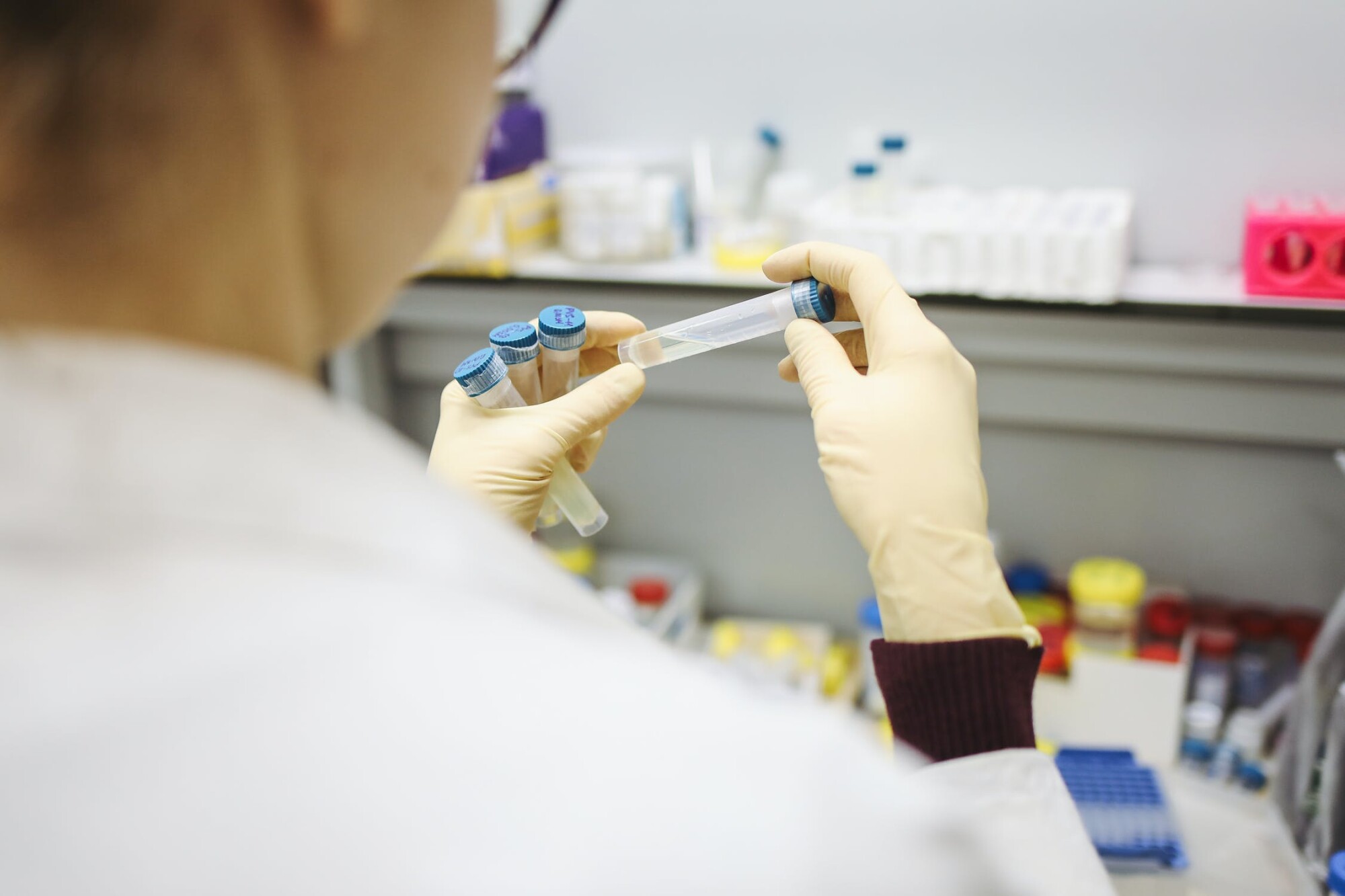Contact Us
Categories
- Data Privacy
- Kentucky Consumer Data Protection Act
- Department of Health and Human Services' Office of Civil Rights
- Medical Residents
- DEI
- Medical Cannabis
- SB 47
- Workplace Violence
- Assisted Living Facilities
- EMTALA
- FDA
- Reproductive Rights
- Roe v. Wade
- SCOTUS
- Medical Spas
- medical billing
- No Surprises Act
- Mandatory vaccination policies
- Workplace health
- Coronavirus Aid, Relief and Economic Security Act
- Code Enforcement
- Department of Labor ("DOL")
- Employment Law
- FFCRA
- CARES Act
- Nursing Home Reform Act
- Acute Care Beds
- Clinical Support
- Coronavirus
- COVID-19
- Emergency Medical Services
- Emergency Preparedness
- Families First Coronavirus Response Act
- Family and Medical Leave Act (“FMLA”)
- KBML
- medication assisted therapy
- SB 150
- Department of Health and Human Services
- Legislative Developments
- Corporate
- United States Department of Justice ("DOJ")
- Employee Contracts
- Non-Compete Agreement
- Opioid Epidemic
- Sexual Harassment
- Health Resource and Services Administration
- Litigation
- Medical Malpractice
- House Bill 333
- Senate Bill 79
- Locum Tenens
- Senate Bill 4
- Physician Prescribing Authority
- Chronic Pain Management
- HIPAA
- Prescription Drugs
- "Two Midnights Rule"
- 340B Program
- EHR Systems
- Hospice
- ICD-10
- Kentucky minimum wage
- Minimum wage
- Primary Care Physicians ("PCPs")
- Skilled Nursing Facilities (“SNFs”)
- Uncategorized
- Affordable Insurance Exchanges
- Compliance
- Department of Health and Human Services (HHS)
- Drug Screening
- Electronic Health Records (“EHR")
- Fraud
- Health Care Fraud
- HIPAA Risk Assessment
- KASPER
- Kentucky Board of Medical Licensure
- Kentucky’s Department for Medicaid Services
- Mental Health Care
- Office for Civil Rights ("OCR")
- Office of Inspector General of the United States Department of Health and Human Services (OIG)
- Physician Assistants
- Qui Tam
- Stark Laws
- Urinalysis
- Accountable Care Organizations (“ACO”)
- Affordable Care Act
- Alternative Payment Models
- Anti-Kickback Statute
- Centers for Medicare & Medicaid Services (“CMS”)
- Certificate of Need ("CON")
- Charitable Hospitals
- Data Breach
- Electronic Protected Health Information (ePHI)
- False Claims Act
- Federally Qualified Health Centers (“FQHCs”)
- Fee for Service
- Health Information Technology for Economic and Clinical Health Act (HITECH Act)
- Health Insurance Portability and Accountability Act of 1996 (HIPAA)
- Health Professional Shortage Area ("HPSA")
- Hospitals
- HPSA
- HRSA
- Kentucky Board of Nursing
- Limited Services Clinics
- Medicaid
- Medical Staff By-Laws
- Medically Underserved Area ("MUA")
- Medicare
- Mid-Level Practitioners
- Part D
- Patient Protection and Affordable Care Act (“ACA”)
- Pharmacists
- Rural Health Centers (“RHCs”)
- Rural Health Clinic
- Telehealth
- American Telemedicine Association (“ATA”)
- APRNs
- Chain and Organization System (“PECOS”)
- Criminal Division of the Department of Justice (“DOJ”)
- Health Care Fraud Prevention and Enforcement Action Team (“HEAT”)
- Hydrocodone
- Kentucky Pharmacists Association
- Qualified Health Care Centers (“FQHC”)
- Telemedicine
- United States ex. Rel. Kane v. Continuum Health Partners
- Webinar
- 2014 Medicare Physician Fee Schedule (“PFS”)
- 501(c)(3)
- Agreed Order
- All-Payer Claims Database ("APCD")
- Chiropractic services
- Chronic Care Management
- Clinical Laboratory Improvement Amendments of 1988 (“CLIA”)
- Compliance Officer
- Compounding
- CPR
- Douglas v. Independent Living Center of Southern California
- Drug Enforcement Agency ("DEA")
- Drug Quality and Security Act (“DQSA”)
- Emergency Rooms
- Enrollment
- Essential Health Benefits
- Hinchy v. Walgreen Co.
- House Bill 3204
- ICD-9
- Jimmo v. Sebelius
- Kentucky Senate Bill 7
- Maintenance Standard
- Medicare Part D
- Minors
- New England Compounding Center ("NECC")
- Ophthalmological services
- Outsourcing facility
- Overpayments
- Physician Compare website
- Re-validation
- Sustainable Growth Rate (“SGR”)
- Texting
- Vitas Innovative Hospice Care
- "Plan of Correction"
- Affinity Health Plan
- Appeal
- Arbitration
- Audit
- Cadillac tax
- Centers for Disease Control and Prevention
- Community health needs assessment (“CHNA”)
- Condition of Participation ("CoP")
- Daycare centers
- Decertification
- Denied Claims
- Department of Medicaid Services’ (“DMS”)
- Dispenser
- Division of Regulated Child Care
- Doe v. Guthrie Clinic
- EHR vendor
- Employer Group Health Plans
- Employer Mandate
- ERISA
- Fair Labor Standards Act (FLSA)
- False Billings
- Federation of State Medical Boards (“FSMB”)
- Food and Drug Administratio
- Form 4720
- Grace Period
- Health Professional Shortage Areas (“HPSA”)
- Health Reform
- HealthCare.gov
- Home Health Prospective Payment System
- Home Medical Equipment Providers
- Hospitalists
- Individual mandate
- Inpatient Care
- Intermediate Sanctions Agreement
- Kentucky Health Benefit Exchange
- Kentucky Medical Practice Act
- Kindred v. Cherolis
- Kynect
- Licensed practical nurses (LPN)
- Licensure Requirements
- List of Excluded Individuals and Entities
- LLC v. Sutter
- Long-term care communities
- Long-Term Care Providers ("LTC")
- Low-utilization payment adjustment ("LUPA")
- Meaningful use incentives
- Medicare Administrative Coordinators
- Medicare Benefit Policy Manual
- Medicare Shared Saving Program (MSSP)
- Mobile medical applications ("apps")
- Model Policy for the Appropriate Use of Social Media and Social Networking in Medical Practice (“Model Policy”)
- National Drug Code ("NDC")
- National Institutes of Health
- Network provider agreement
- Nonprofit hospitals
- Nonroutine medical supplies conversion factor (“NRS”)
- Nurse practitioners (NP)
- Office of the National Coordinator for Health Information Technology (“ONC”)
- Part A
- Part B
- Patient Privacy
- Payors
- Personal Service Entities
- Physician Payments
- Physician Recruitment
- Physician shortages
- Ping v. Beverly Enterprises
- Power of Attorney ("POA")
- Prescriber
- Provider Self Disclosure Protocol
- Qualified Health Plan ("QHP")
- Quality reporting
- Registered nurses (RN)
- Residency Programs
- Self-Disclosure Protocol
- Social Media
- Spousal coverage
- State Health Plan
- Statement of Deficiency ("SOD")
- Trade Association Group Coverage
- Upcoding
- UPS
- “Superuser”
- Advanced Practice Registered Nurses
- Autism/ASD
- Business Associate Agreements
- Business Associates
- Call Coverage
- Center for Disease Control
- Compliance Programs
- Critical Access Hospitals (“CAHs”)
- Essential Health Benefits (“EHBs”)
- Genetic Information Nondiscrimination Act ("GINA")
- Group Purchasing Organizations ("GPO")
- Healthcare Information and Management Systems Society (HIMSS)
- House Bill 104
- Kentucky House Bill 159
- Kentucky House Bill 217
- Kentucky Primary Care Centers (“PCCs”)
- Managed Care Organizations (“MCOs”)
- Medicare Audit Improvement Act of 2012
- Patient Autonomy
- Personal Health Information
- Recovery Audit Contractors (“RAC”)
- Senate Bill 39
- Senate Finance Committee Report
- Small Business Health Options Program (“SHOP”)
- State Medicaid Expansion
- Sunshine Act
- Abuse and Waste
- Consumer Operated and Oriented Plan programs (“CO-OPS”)
- Employee Agreement
- Free Conference Committee Report
- Health Care Fraud and Abuse Control Program
- House Bill 1
- House Bill 4
- Kentucky Cabinet for Health and Family Services
- Kentucky Health Care Co-Op
- Kentucky Health Cooperative (“KYHC”)
- Kentucky “Pill Mill Bill”
- Occupational Safety and Health Administration (“OSHA”)
- Pain Management Facilities
- Health Care Law
- Health Insurance
- Healthcare Regulation
McBrayer Blogs
OIG and CMS Audits Present New Round of Compliance Concerns for Healthcare Providers
Since the beginning of the Public Health Emergency, Centers for Medicare and Medicaid Services (“CMS”) and the Centers for Disease Control and Prevention (“CDC”) data reflect over 44 million COVID-19 cases, 3 million COVID-19 related hospitalizations, and 720,000 COVID-19 deaths. COVID-19 has placed enormous stress on our healthcare system. Federal and state responses to COVID-19 have woven a complex and complicated safety net by easing regulatory requirements through waivers and funneling billions of dollars to providers among many other actions. Just as the pandemic may finally be easing, federal focus on use of COVID-19 resources promises to increase healthcare providers’ stress.
In light of the $1.5 billion[1] dollars Medicare spent on COVID-19 testing, the Office of the Inspector General (“OIG”) has announced a strategic shift from creating a safety net to support providers to evaluating providers’ use of COVID-19 resources. The OIG has announced a “series of audits” as well as a “trend analysis” for Medicare lab billing related to COVID-19 testing to identity potential instances of fraud and abuse. The OIG ’s trend analysis of Medicare lab billing will target COVID-19 add-on testing.[2]
 When conducting COVID-19 testing, laboratories can also perform add-on diagnostic laboratory testing to confirm or rule out diagnoses other than COVID-19. However, the OIG has program integrity concerns about add-on tests when performed in conjunction with COVID-19 tests, particularly related to potentially fraudulent billing for the following add-on testing: respiratory pathogen panel (“RPP”) tests, allergy tests, and genetic tests.[3] Add-on testing is a focal point in light of CMS’ relaxation of rules related to COVID-19 testing, which eliminated the requirement for an order from a physician or non-physician provider during the public health emergency.
When conducting COVID-19 testing, laboratories can also perform add-on diagnostic laboratory testing to confirm or rule out diagnoses other than COVID-19. However, the OIG has program integrity concerns about add-on tests when performed in conjunction with COVID-19 tests, particularly related to potentially fraudulent billing for the following add-on testing: respiratory pathogen panel (“RPP”) tests, allergy tests, and genetic tests.[3] Add-on testing is a focal point in light of CMS’ relaxation of rules related to COVID-19 testing, which eliminated the requirement for an order from a physician or non-physician provider during the public health emergency.
The OIG has stated, “relaxation of the physician ordering/nonphysician practitioner rules could allow unscrupulous actors more leeway for fraudulent billing of unnecessary add-on testing.”[4] The OIG’s “trend analysis” will examine Medicare claims data for laboratory testing to identify trends in the use of RPP, allergy, and genetic testing and identify patterns of billing by laboratories that the OIG believes may indicate fraud and abuse.[5]
For healthcare providers this only means one thing: get ready.
What to Expect and How to Prepare
Many practices, rural health clinics, ambulatory clinics, and other providers have expanded their laboratory capabilities to accommodate the need for COVID-19 testing and can be subject to audit. To prepare for these audits and trend analysis, providers should begin asking themselves the very same questions the OIG will ask about COVID-19 test billing: (1) Were the tests eligible to be covered by Medicare? (2) Was it appropriate to bill Medicare for travel and collection of specimens? (3) Do we have the right documentation?
- Were the tests eligible to be covered by Medicare?
Medicare does not provide coverage for all COVID-19 tests. In fact, Medicare only covers diagnostic tests, i.e., ones administered to a patient who has displayed COVID-19 symptoms or was exposed to COVID-19. Medicare does not cover non-diagnostic tests, i.e., those performed solely to monitor public levels of the virus for health surveillance. Importantly, Medicare only pays for lab tests which are medically necessary—if the COVID-19 test was accompanied by another lab test, each test may be reviewed to determine whether it was medically necessary, and therefore billable to Medicare. The OIG audits will focus on COVID-19 tests and accompanying tests conducted and submitted for payment, applying scrutiny to whether each test was medically necessary.
This opens up the hypothetical “gates” to a far reaching and thorough audit by the OIG.
- Was it appropriate to bill Medicare for travel and collection of specimens?
In many instances, an entity (perhaps the lab itself or a specimen collection company) will travel to healthcare facilities to collect samples for diagnostic tests. Medicare will pay for travel if an entity must go to another location to collect samples from Part B inpatients who are homebound or non-hospital. However, if the test is performed in the same location that the test sample is collected, Medicare will not pay for any travel expenses. Thus, it is improper for a healthcare facility or provider to request reimbursement for travel expenses that are inaccurate or inflated. If a provider has billed Medicare for specimen collection related travel, it is required to have logs supporting the mileage traveled (whether in paper or electronic format). If no such logs exist, payment for travel may be in jeopardy.
- Does Proper Documentation Exist?
 As with every service billed, a provider must have a medical record that supports the claims filed. COVID-19 testing, however, is different because an order for a test is not always medically necessary. For coverage, however, the medical record must reflect that the test was medically necessary meaning the patient’s record should reflect that the patient was reporting symptoms and/or had been exposed to COVID-19. The medical record should contain pertinent facts, such as when the patient was exposed, and a detailed outline of what symptoms the patient was showing. Thus, the provider should have proper records documenting the medical necessity for the test as well as for any add-on test that was performed at the same time. Providers should review their records to ensure that COVID-19 tests have been properly documented in terms of their performance and billing, to avoid compliance issues. Previously billed COVID-19 tests should be reviewed to ensure proper coding was used. Gathering and organizing such information is the most important step in preparing for any audit and avoiding liability.
As with every service billed, a provider must have a medical record that supports the claims filed. COVID-19 testing, however, is different because an order for a test is not always medically necessary. For coverage, however, the medical record must reflect that the test was medically necessary meaning the patient’s record should reflect that the patient was reporting symptoms and/or had been exposed to COVID-19. The medical record should contain pertinent facts, such as when the patient was exposed, and a detailed outline of what symptoms the patient was showing. Thus, the provider should have proper records documenting the medical necessity for the test as well as for any add-on test that was performed at the same time. Providers should review their records to ensure that COVID-19 tests have been properly documented in terms of their performance and billing, to avoid compliance issues. Previously billed COVID-19 tests should be reviewed to ensure proper coding was used. Gathering and organizing such information is the most important step in preparing for any audit and avoiding liability.
As part of a provider’s routine compliance review, samples of patients’ medical records where COVID-19 testing was performed should be reviewed, particularly if additional testing was performed at the same time. Records should be reviewed to assure that a Subjective, Objective, Assessment and Plan (“SOAP”) note exists that supports the testing performed. Generally, a SOAP note reflects sufficient clinical reasoning to assess, diagnose, and treat a patient based on the information provided to them by the patient and captures medical necessity. Using a SOAP as a checklist serves as a cognitive aid and a potential index to retrieve information from the record.[6] It is essential to make the most clinically relevant data in the medical record easier to find and more immediately available prior to being inspected or audited by a third-party.
Conclusion
Federal audits are a stressful prospect for the already overwhelmed healthcare facilities and providers. Incorporating a review of medical records as part of routine compliance activities is a responsible way to address issues before they become the subject of an audit or investigation. Any facility or practice performing COVID-19 testing should determine whether add-on testing was also performed. We are here to help our clients ensure compliance with all regulatory and statutory directives. For assistance with these or any other healthcare matters, contact your McBrayer attorney today.
 Lisa English Hinkle is a Member of McBrayer law. Ms. Hinkle chairs the healthcare law practice and is located in the firm’s Lexington office. Contact Ms. Hinkle at lhinkle@mcbrayerfirm.com or (859) 231-8780, ext. 1256.
Lisa English Hinkle is a Member of McBrayer law. Ms. Hinkle chairs the healthcare law practice and is located in the firm’s Lexington office. Contact Ms. Hinkle at lhinkle@mcbrayerfirm.com or (859) 231-8780, ext. 1256.
 Jonas Bastien is an Associate of McBrayer Law. He practices with the healthcare and litigation groups in the firm's Lexington office. Mr. Bastien can be reached at jbastien@mcbrayerfirm.com or (859) 231-8780, ext. 1029.
Jonas Bastien is an Associate of McBrayer Law. He practices with the healthcare and litigation groups in the firm's Lexington office. Mr. Bastien can be reached at jbastien@mcbrayerfirm.com or (859) 231-8780, ext. 1029.
[1] https://www.jdsupra.com/legalnews/what-to-expect-as-oig-and-cms-audits-5798246/
[2] https://oig.hhs.gov/reports-and-publications/workplan/summary/wp-summary-0000489.asp
[3] Id.
[4] Id.
[5] Id.
[6] https://www.ncbi.nlm.nih.gov/books/NBK482263/#

